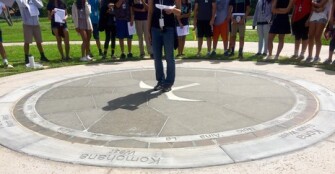
When I moved to Hawai’i a few years ago, I was often met with the question, “Where you grad?”
I’d name my university and would be quickly corrected, “No, no, high school! Where you went grad?” (More on this in Honolulu Civil Beat).
In Hawai’i, it’s known that “place matters.” Local culture is strong, and people know the value of being in a place that knows your family story, and learning from the people who taught your brothers and aunties, the people who can share your history with you from multiple perspectives.
In the raging education debate around “charter” v.s. “neighborhood” schools, we are sometimes caught up in data points and forget to see the stories and histories at stake in the discussion.
NPR’s Code Switch blog discusses this topic, including the intense #FightForDyett debate, in the article, “What We Lose When A Neighborhood School Goes Away.” Writer Gene Demby pulls out a few important points:
Schools are where young people first learn how to interact with their communities in official and personal capacities, and offer a touchstone to reconnect with way down the line. Our schools are signposts in the stories we tell ourselves about ourselves and our communities
Also:
Tear down the schools that no one wants, in neighborhoods no one cares about. But that also means wiping out something central to our personal stories of growing up and coming of age and being from a place.
The history of a community is often strongly tied to a racial community (or communities) that exist there. In an attempt to “fix” issues, we risk erasing family stories and community knowledge often ignored in the mainstream education debate. There aren’t clear answers to this, just a reminder that we need to remember and honor that history when we talk about what’s next for a school.
Demby’s piece is an important read, as is the question the pieces reminds us to ask ourselves: in the education debate, whose stories and voices do we value?
Above: Ninth grade students from Honolulu, HI, at the NOAA Hawaiian star compass. Image from author.


